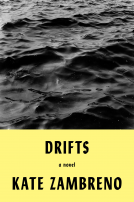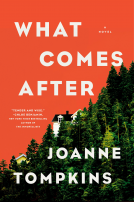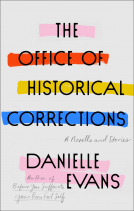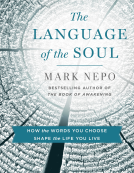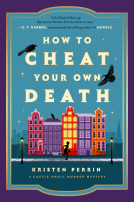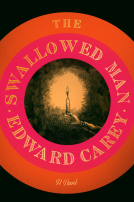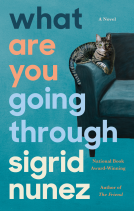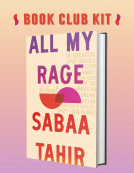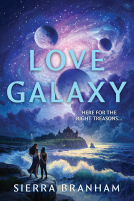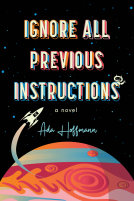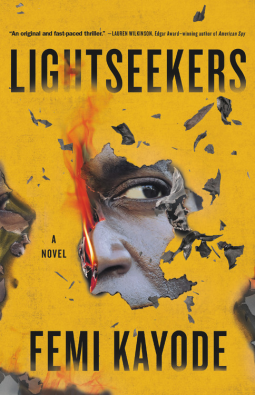
Lightseekers
by Femi Kayode
This title was previously available on NetGalley and is now archived.
Send NetGalley books directly to your Kindle or Kindle app
1
To read on a Kindle or Kindle app, please add kindle@netgalley.com as an approved email address to receive files in your Amazon account. Click here for step-by-step instructions.
2
Also find your Kindle email address within your Amazon account, and enter it here.
Pub Date Mar 02 2021 | Archive Date Apr 02 2021
Description
When Dr. Philip Taiwo is called on by a powerful Nigerian politician to investigate the public torture and murder of three university students in remote Port Harcourt, he has no idea that he’s about to be enveloped by a perilous case that is far from cold.
Philip is not a detective. He’s an investigative psychologist, an academic more interested in figuring out the why of a crime than actually solving it. But when he steps off the plane and into the dizzying frenzy of the provincial airport, he soon realizes that the murder of the Okriki Three isn’t as straightforward as he thought. With the help of his loyal and streetwise personal driver, Chika, Philip must work against those actively conspiring against him to parse together the truth of what happened to these students.
A thrilling and atmospheric mystery, and an unforgettable portrait of the contemporary Nigerian sociopolitical landscape, Lightseekers is a wrenching novel tackling the porousness between the first and third worlds, the enduring strength of tribalism and homeland identity, and the human need for connection in the face of isolation.
Advance Praise
"This is [Kayode's] first novel, and a delight it is....The book introduces the forces at play in contemporary Nigeria as well as serving as a warning against mob mentality — and a reminder of how readily people fall into it." —New York Times Book Review
“Lightseekers is ripe with all the twists and turns you could hope for and Philip Taiwo is exactly the type of person you’d want investigating misdeeds and revealing complicated truths. A fast-paced thriller that offers insight into the ever present tensions in a poverty stricken community. An action-packed and spirited debut.” —Oyinkan Braithwaite, author of Los Angeles Times Book Prize-winning My Sister, the Serial Killer
“Femi Kayode’s debut novel about an investigative psychologist’s quest to uncover the truth behind the mob killing of three university students is an original and fast-paced thriller which masterfully explores the smoldering historical tensions underpinning modern-day Nigeria, the role of social media, and the complexities of family, friendship and belonging.” —Lauren Wilkinson, Edgar Award-winning author of American Spy
Available Editions
| EDITION | Other Format |
| ISBN | 9780316536615 |
| PRICE | $28.00 (USD) |
| PAGES | 432 |
Average rating from 13 members
Featured Reviews
The old adage about judging a book by its cover is a good one, but in this case, the cover is exactly what caught my eye, and after reading the summary, I was intrigued and quickly dove in.
Dr. Philip Taiwo is a respected Nigerian investigative psychologist called upon to look into the public torture and murder of three young students, dubbed the Okriki Three. Wary of the task but unable to turn away, he heads to Port Harcourt. With the help of his driver, Chika, Philip embarks on a harrowing and complex trip to find the truth, realizing that the tumultuous sociopolitical landscape might reveal more about the deaths than he originally anticipated--a fact that might put his own life in danger.
I loved this book.
Philip is an interesting character for several reasons. First, his layered voice is authentic and highly engrossing. His personal problems remain a sticking point throughout the narrative, and this adds to his internal conflict about a burgeoning friendship with Salome. Additionally, we experience PH through his lens which is at times at odds with his objective. On the one hand, Philip is an outsider, an Americano, not from the town or familiar with the day-to-day routines, despite having familial ties to the area. On the other hand, he feels a strong sense of obligation to his father and his heritage. He combats this duality at crucial points, wanting to be accepted but also realizing that he cannot be accepted. His frame of reference causes him to react to things Chika finds normal, and this juxtaposition is also reflected in his descriptions of the setting. We get the extremes: a glamorous hotel with concierge service and buffets--and the dirt roads, no electricity, violence, and religious upheaval in the city.
The Otherness Philip's character explores is such a relevant topic, especially given the current climate. Much like his investigation into the Okriki Three, we, the reader, are forced to confront our own biases and shortcomings, our own inherent worldly assumptions and how our views are shaped by the experiences in our community. Yes, this is an excellent suspense about one man's quest to find the truth, but it is also a literary reflection on Nigerian culture, political and religious intricacies, the far-reaching consequences of social media and weaponization of technology, and the role of family/community in the larger picture of duty and morality.
The Lightseekers is a smart, taut read with purpose and poise. If you put any book on your 2021 TBR, let it be this one. I will definitely be re-reading again and look forward to more Philip Taiwo stories in the future.
Big thanks to Mulholland and NetGalley for providing an eARC in exchange for honest review consideration.
 Su. P, Bookseller
Su. P, Bookseller
What a wonderful debut from Femi Kayode! I really enjoyed this unique crime novel. I loved that the main character was not part of law enforcement, it gave an interesting perspective on the story making it standout form the standard crime novel. This book passed my personal test. (It made me want to read something else by the author and research the non-fiction aspects of the fictional works.) I want to always keep learning and I did a little research on fraternities (cults) in Nigerian Universities. Thank you Mulholland Press for this great title.
The event that sets off Lightseekers is a triple murder of uni students at the hands of a mob, but it’s before the novel opens, and it’s mostly offstage. Instead, we see the protagonist’s reaction to the video of the murder of the Okriki Three. Just as Philip Taiwo is revolted and motivated to find the truth, so was I.
Taiwo is a psychologist, not a police officer or detective, and he comes at these crimes as an academic, with different access than the law or a family representative would have. He’s already drawn in through complicated personal loyalties, and that’s sort of the heart of this book, all about complicated loyalties and personal connections.
Some of the college boys are in special groups, positively called fraternities, negatively called cults. There’s not really a religious aspect to these groups, but it’s somewhere between wild frat boy partying, a mutual aid society, and mob shakedowns of other students. At times, it’s a bit like the town vs gown stories of Oxbridge lore. This idea, that a group is either working for mutual protection and advancement or it’s a hostile, violent gang, comes up again and again, not only for the college boys.
Taiwo’s investigations turn up wider social issues, too. Some of the history referenced is confusing if the only information you know about the Nigerian civil war comes from Half a Yellow Sun. It didn’t make the novel hard to follow, though, it just feels like what Phillip learns from the chief is a tiny fragment of what’s going on. Also, I like to read international fiction because I like discovering different settings and viewpoints, so I don’t mind a little confusion as I learn more.
There’s a lot about social expectations and access to resources in this novel, but it’s also a solid detective story with a sympathetic protag in Philip Taiwo, and plenty of twists and surprising connections in his investigations.
I’m judging a 2021 fiction contest. It’d be generous to call what I’m doing upon my first cursory glance—reading. I also don’t take this task lightly. As a fellow writer and lover of words and books, I took this position—in hopes of being a good literary citizen. My heart aches for all the writers who have a debut at this time. What I can share now is the thing that held my attention and got this book from the perspective pile into the read further pile.
“As John Paul walks away, I follow him in the shadows, unable to unsee the nightmare he created behind us. And because he doesn’t look back, neither can I.”
Woosh.
In a small Nigerian town near Port Harcourt, university students who came to be known as The Okriki Three were brutally beaten and murdered by a group of townspeople after they were accused of theft, and several video appear of the melee on social media. Though what happened is evident, the local constabulary have been lackluster in pursuing suspects, and only a handful of the many people filmed are charged.
This doesn’t sit well with Emeka Nwamadi, the head of one of the largest commercial banks in Nigeria, and father of Kevin, one of the killed boys, who by all accounts had no relationship to the other two students executed. Emeka hires Dr. Philip Taiwo, an investigative psychologist, to determine what led to the tragic events—the elusive why behind the crime.
With Chika Makuochi, a streetwise driver provided by Emeka, Taiwo travels to Okriki from Lagos and is immediately stonewalled both by the police and by the people of the community. Even the hotel manager and local landlords have heard rumors of his investigation within hours and pressure him to leave the city. While Taiwo doubted his ability to uncover any new information, the stone wall he hits indicates that something is being hidden, and he becomes more committed to learning the truth even as his goals diverge from Emeka’s and he wonders if he can trust Chika, his closest ally, and Salome Briggs, a lawyer who has provided him assistance.
Although Taiwo is Nigerian, he was educated and worked in the United States, and has only been back in Nigeria for a relatively short time, living in Lagos, the most populated city in the country. He has to reacclimate himself not only to the conflicts between Christians and Muslims—which are stoked in Okriki by active and acrimonious social media posts—the area also has tension between different tribal groups, between the town and university students, and between the oil companies and the citizens. Corruption abounds, as does the opportunity for extrajudicial justice.
Because of the many layers of conflict that sow distrust, and the interesting question behind the mystery—why was Kevin, a model student, killed—I enjoyed the book, but what I liked most what learning more about the cultural context. Kayode explores the issue of university cults—non-sanctioned and sometimes violent fraternities which I hadn’t been aware of. Chika was an interesting character, and I enjoyed learning more about him. Taiwo serves as an effective narrator, although at times I was frustrated with his tone or when he got angry with other characters for doing things he did in previous chapters. Interstitial chapters by an unknown (until the end) character were very disturbing and fittingly conveyed a sinister atmosphere.
I understand that this is the first book in a series, and I plan on reading the second book when it is available!
Readers who liked this book also liked:
Silvia Moreno-Garcia
Historical Fiction, Literary Fiction, Sci Fi & Fantasy
We Are Bookish
Multicultural Interest, OwnVoices, Teens & YA
